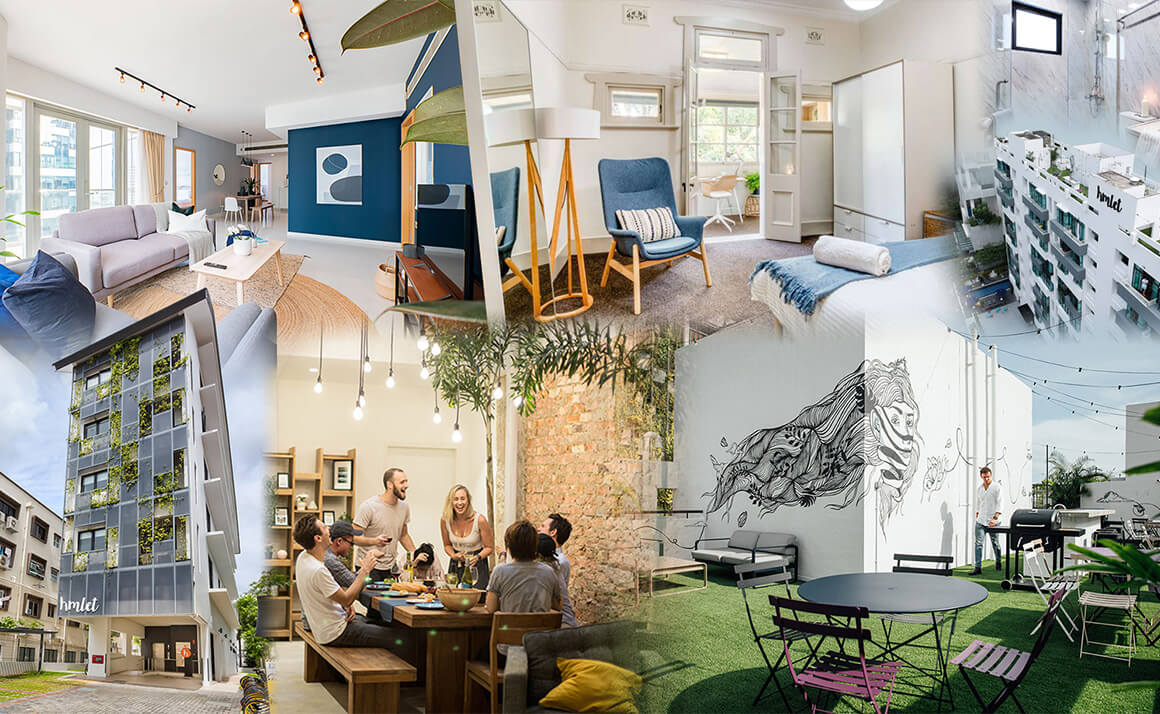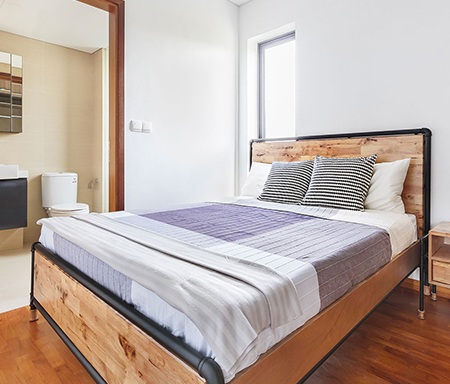
Is co-living Asia’s affordable housing solution?
A major cause of frustration for young professionals in cities around Asia Pacific is the cost of housing. Whether it is Hong Kong, Melbourne or Mumbai, the rents may be different, but the story is the same – the young professionals driving the city’s knowledge economy can’t get what they want.
Co-living – rental accommodation where tenants take smaller units in return for affordable rents and shared facilities – began in the US, but has really taken off in Asia. There are a number of variations on the theme; at the budget end the accommodation resembles student dormitories while the most upmarket space in developed cities offers tenants the chance to get a level of accommodation they could not otherwise afford.
As with other sharing economy innovations, technology is key to co-living. Many operators use an app so tenants can buy extra services or interact with their fellow renters.
Not that long ago, co-living was the territory of a few start-ups, however serious capital is now being allocated to the sector as investors realise its potential.
India’s combination of crowded cities and a huge graduate population (there are 35m students in higher education) could make it ideally suited to co-living. So it is no surprise that in August, Embassy Group announced a plan to invest $500m in the sector, through its new EPDPL Co-Living brand.
The company says it plans an initial 20,000 beds to be developed on its existing land holdings and over the next five years plans to construct a staggering 100,000 rooms. Embassy group COO Aditya Virwani told the Times of India it would “exceed the expectations of Millennials who are looking for a community which feels like home”.
Meanwhile Zolo, a co-living start-up launched in 2015, is in talks to raise $100m of venture capital funding to expand its business. An earlier $30m funding round saw investors including South Korea’s Mirae Asset.
Dipali Gandhi, Director, Research and Consulting, at Savills India, says: “This is a new sector for India and very fragmented at present. There is certainly potential, but demand will be largely limited to single people, either students or those who have moved to a new city for a job.
“We see demand in university cities such as Noida and Pune, IT/ITeS hubs like Bengaluru, NCR and more expensive locations such as Mumbai.”
China also has huge potential for co-living and it has the advantage of government backing as Beijing is keen to establish a rental residential market.
However, many of the new residential rental companies are more focused on traditional apartments, even if their target tenants are young professionals. For example Lejia Apartments, which went bankrupt this year, rented individual flats from owners and then leased them to new tenants. However, in attempting to grow its business by offering good rents to landlords and discounted rents to tenants, it ran out of cash.
Harbour Apartments, backed by Gaw Capital and Far East Horizon, offers more of a true co-living solution, with shared facilities including kitchens, gyms and living rooms. With its backers, it is raising $2.6bn via new funds to buy more properties for conversion and to acquire land for new developments.
Beijing-based Danke Apartment recently raised $500m from investors including Alibaba’s Jack Ma. It has a slightly different strategy, taking large family apartments and subdividing them for young professionals. It also offers shared services and experiences for its tenants.
James Macdonald, senior director at Savills China, says the process of converting existing buildings to co-living can be slow. “Investors have to first enter into negotiations with existing owners, then come up with a tailored design for the property, apply for the appropriate planning permits and carry out renovation works all on a case-by- case basis. The redevelopment is very much dependent upon government support both at a city and district level.”
In Asia Pacific developed markets, co-living is beginning to take off, with companies such as Hmlet, which launched in 2016, now has operations in Singapore, Hong Kong, Tokyo and three Australian cities. When Prospects interviewed founder Yoan Kamalski in 2018, Hmlet has just raised $1.5m of funding, this year it raised $40m and brought in Mitsubishi Estate as an investor.
Further reading:
Savills Hong Kong on Co-living
Contact Us:
Simon Smith | James Macdonald



